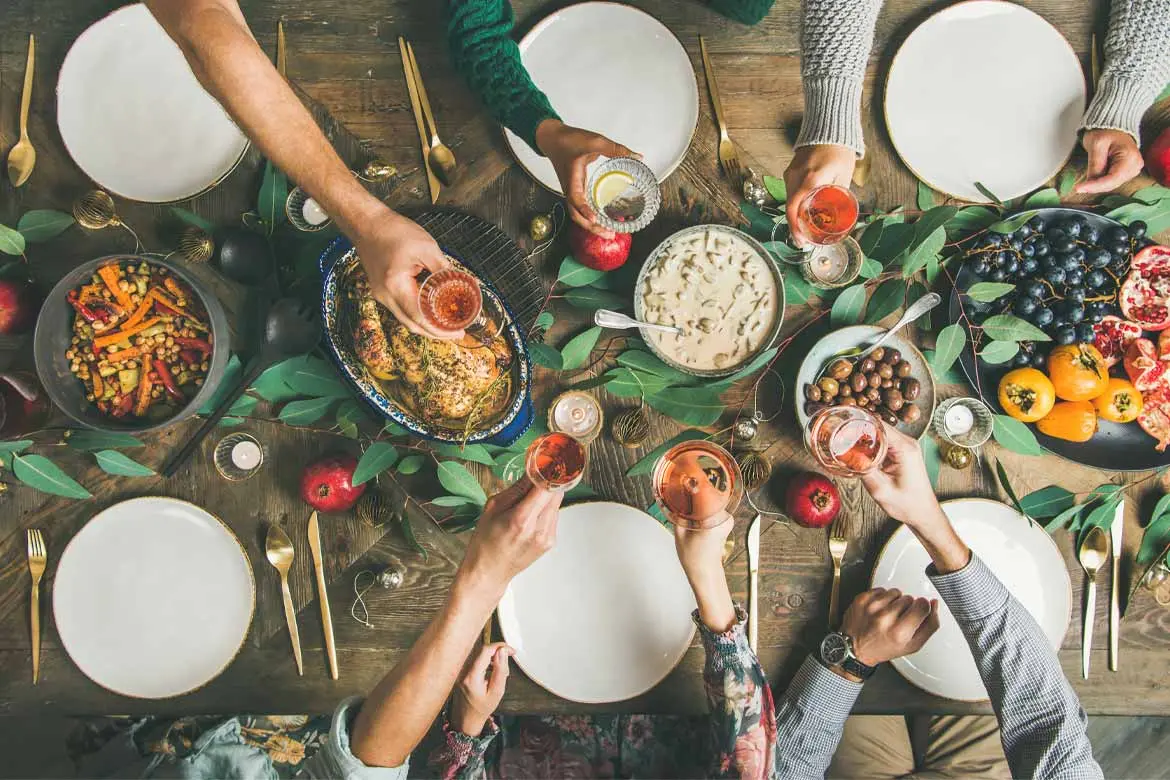Dr Wong Kong Min Reuben
Gastroenterologist


Source: Shutterstock
Gastroenterologist
While no one’s going to judge you for having that extra slice of log cake or turkey, overeating can cause many short and long term health problems.
You’ll be able to tell that you’ve bitten off more than you can chew if you’re experiencing heart burn, a bloated belly or experience acid reflux – that sour, acidic taste in your mouth.
In the long run, overeating can damage the body and cause long-term health issues such as obesity, heart disease, high blood pressure, and high cholesterol. Should you frequently experience such symptoms, consider consulting with a gastroenterologist. He or she might be able to advise you on the next appropriate step – be it diet modification, lifestyle changes or investigations to check your digestive tract, such as an endoscopy or a breath test.
Watch how much you eat – Eat in moderation when it comes to richer festive foods with a higher calorie count.
Savour your meal – Savour what’s in front of you and chew your food thoroughly to aid digestion, reduce binge eating and get the most out of your meal.
Portion out food – Portioning out single servings may help you control the amount of food you’re consuming. Using smaller plates and glasses may also help you regulate your eating habits.
Besides overeating, the feasting that happens during festive celebrations may lead to food poisoning, which really puts a damper on the holiday spirit.
Whether you’re eating at home, catering for a gathering of friends or dining at a restaurant, here are some tips for various festive occasions:
Keep clean
Make sure you wash your hands, counters, cooking tools and produce thoroughly before proceeding to cook. You never know where bacteria may lurk and you won’t want to introduce them into your meal.
Separate raw and cooked foods
Raw meat and eggs should be kept away from other food in the fridge, and even in your grocery bag. Use a different cutting board for cooked and raw foods. The reason for this? To prevent the spread of germs from between your food items.
Cook at the right temperatures
Food should be cooked at high temperatures to kill all possible germs.
While we’re not trying to interfere with your inner Gordon Ramsay, cooking temperatures differ depending on produce. Be sure to double check your recipe in advance!
Deal with leftovers
With the sheer amount of food served during festive gatherings, it’s tempting to keep leftovers for subsequent meals.
Be sure to:
Scrutinise for spoilage
Common warning signs of food spoilage include sickly smells, discolouration and changes in texture. Generally, food that’s high in protein tends to spoil faster than food high in sodium or sugar.
Check food hygiene standards
Before ordering your food, be sure to check out the company’s food hygiene grades, and to do a quick Google search of the restaurant and caterer, in case of previous lapses.
Be mindful of the produce being used
When in doubt, be sure to enquire with your server or caterer on the quality and type of produce being used. Keep an eye out for produce like raw fish (used in Chinese New Year dishes like yu sheng), undercooked poultry, dairy products and eggs.
Be mindful when reheating
While reheating leftovers from your meal can be a great way to save on cash, you’ll want to ensure that your food is piping hot after reheating. When in doubt, reheat and consume leftovers in one sitting.
Adhere to 'consume by’ time-stamps on catered food
If you’re catering for a party, be sure to consume it by the deadline on the package (normally four hours from the dish being cooked). Bacteria can multiply rapidly between temperatures of 5 – 60 degrees Celsius, which puts you at a higher risk of food poisoning.